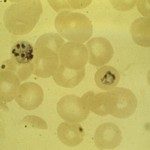Link to Pubmed [PMID] – 38501269
Link to DOI – 10.1080/14712598.2024.2330948
Expert Opin Biol Ther 2024 Mar; (): 1-7
Heterozygous familial hypercholesterolemia (HeFH) is a common genetic disorder caused by pathogenic variants in the LDL-C metabolism. Lifelong exposure to elevated LDL-C levels leads to a high risk of premature cardiovascular disease. To reduce that risk, children with HeFH should be identified and treated with lipid-lowering therapy. The cornerstone consists of statins and ezetimibe, but not in all patients this lowers the LDL-C levels to treatment targets. For these patients, more intensive lipid-lowering therapy is needed.In this review, we provide an overview of the monoclonal antibodies which are currently available or being tested for treating HeFH in childhood.Monoclonal antibodies that inhibit PCSK9 are first in line lipid-lowering treatment options if oral statin and ezetimibe therapy are insufficient, due to intolerance or very high baseline LDL-C levels. Both evolocumab and alirocumab have been shown to be safe and effective in children with HeFH. For children, evolocumab has been registered from the age of 10 years old and alirocumab from the age of 8 years old. The costs of these new agents are much higher than oral therapy, which makes it important to only use them in a selected patient population.

